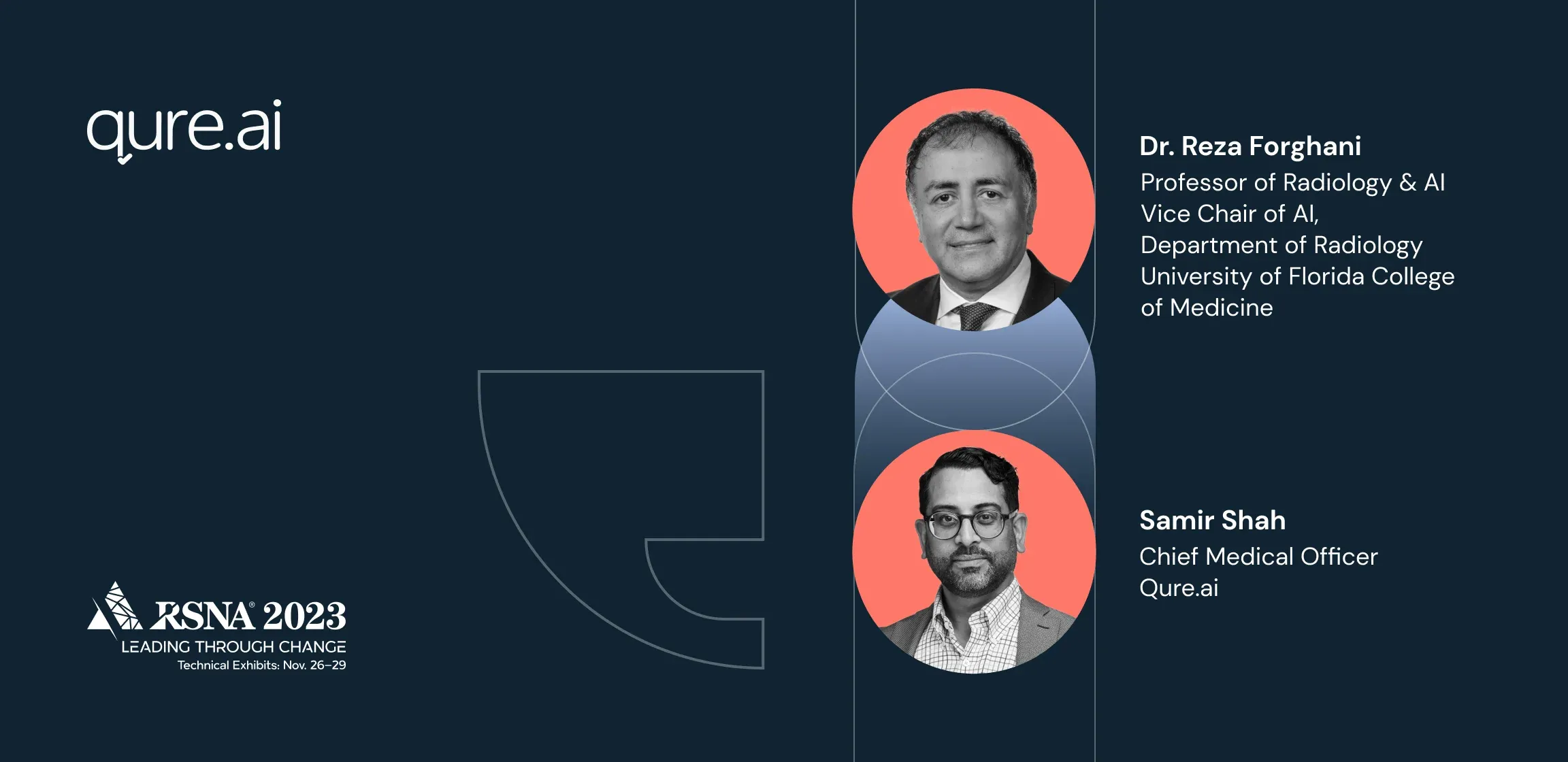Join us at RSNA 2023 for a groundbreaking exploration of AI's transformative potential in rural and remote healthcare settings, featuring insights from Dr. Reza Forghani, Professor of Radiology & Vice Chair of AI, Dept. Radiology; Director, Radiomics and Augmented Intelligence Laboratory (RAIL), University of Florida College of Medicine. He is in conversation with Dr. Samir Shah, Chief Medical Officer, Qure.ai.
Back
Introduction: Dr. Reza Forghani, acclaimed for his work in radiomics and AI, leads a compelling session on leveraging AI to revolutionize healthcare in rural and remote areas. The discussion not only addresses North American rural healthcare challenges but also extends its implications globally, recognizing the unique needs of remote regions worldwide.
Key Points:
- Broadening Expertise Through AI: AI's ability to bring top-level diagnostic expertise to remote locations lacking specialized healthcare professionals. This includes enhancing the capabilities of general radiologists to deliver near-subspecialist level care.
- AI as a Catalyst for Health Equity: Emphasizing AI's role in promoting health equity, particularly in stroke care, where timely AI-assisted diagnoses can expedite critical treatments. AI's potential in remote areas extends to improving patient outcomes and enhancing the overall quality of care.
- Economic and Operational Efficiency of AI: Discussing the practicality and sustainability of AI implementation in healthcare, including considerations around who should fund AI advancements in rural settings. The focus is on the tangible value AI brings, from improving safety and efficiency to potentially influencing reimbursement models and healthcare policy.
Main Synopsis of Discussion: Delving into the specifics of AI's impact, Dr. Forghani and Samir Shah explore the cost-effectiveness of AI applications in healthcare. They discuss how AI not only enhances diagnostic accuracy but also aids in efficient patient management, especially in resource-limited settings.
Conclusion: The session concludes with a powerful affirmation of AI's capacity to deliver equitable, efficient, and high-quality healthcare in rural and remote areas. Dr. Forghani's insights underscore the potential of AI to transform healthcare delivery, making it more accessible and effective across diverse geographical landscapes.
